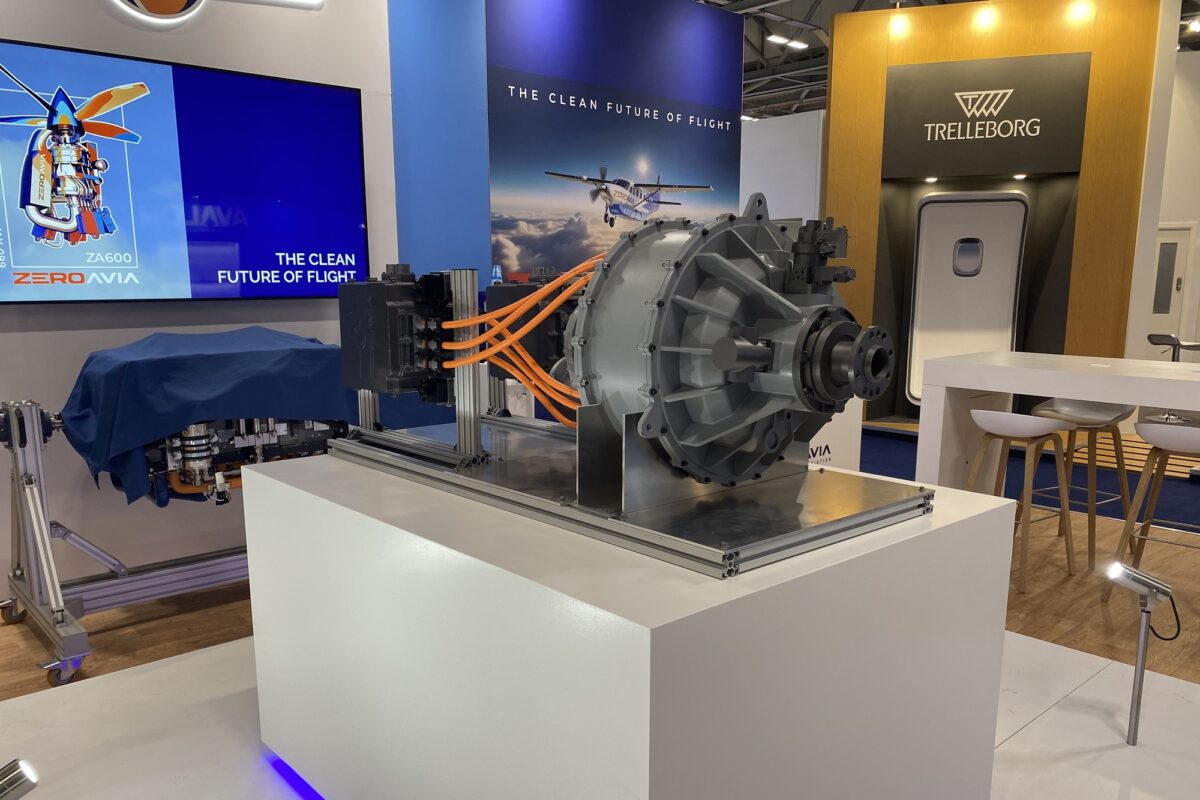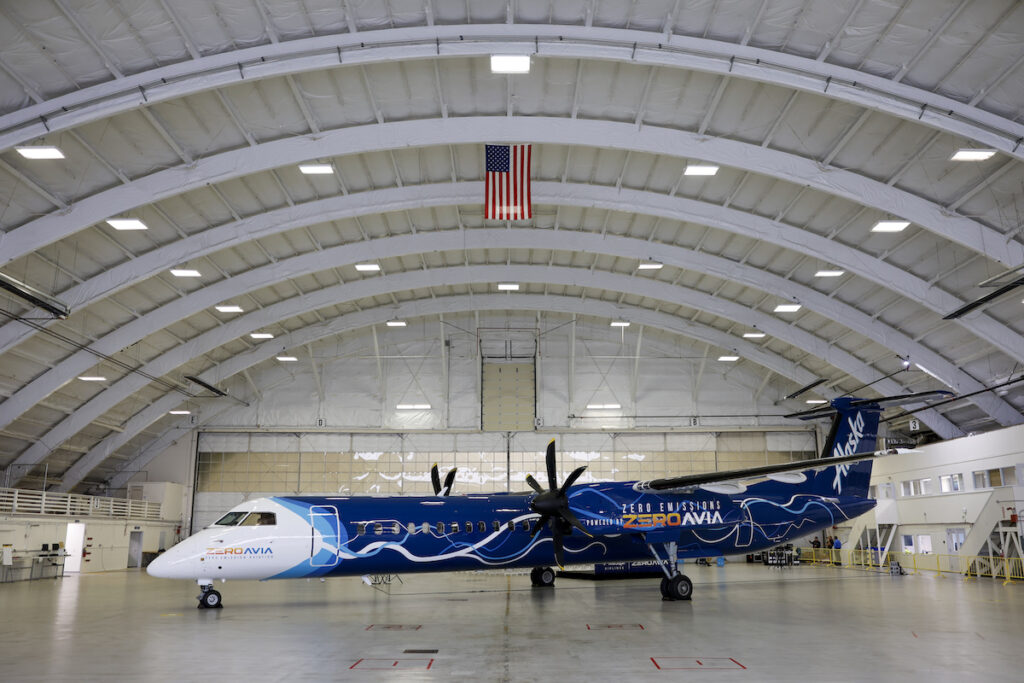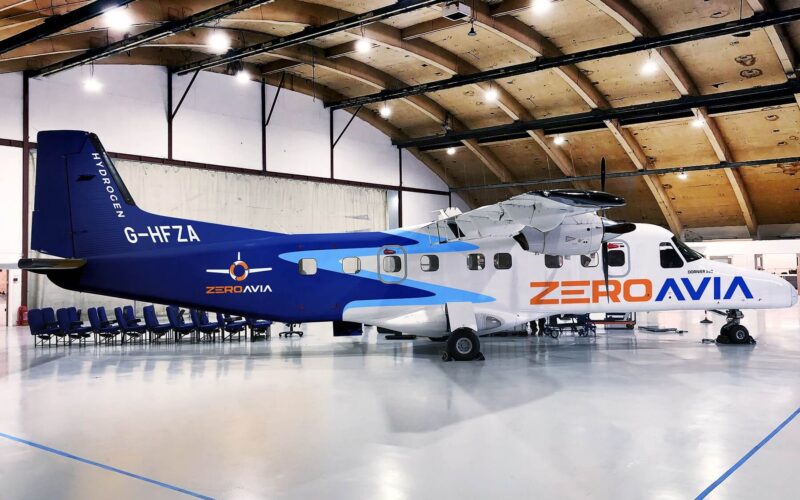The meteoric rise of British/American hydrogen-electric aircraft developer ZeroAvia, established in 2018, is a success story driven by passion and determination for a cleaner future of flight.
Its journey over the last six years is a celebration of how important it is to assemble a team of gifted aerospace and electrical engineers to achieve real-life results in the pursuit of new technology.
Since July 2024, ZeroAvia has confirmed new agreements with five aviation organizations that are focused on future aircraft powered by hydrogen engines. These include American Airlines, ASL Aviation Holdings, KLM, Jekta and ecojet.
Add these to the list of existing partnerships that include companies such as Japan Airlines, Airbus, United Airlines, Alaska Airlines, Natilus, and Air Cahan then it’s clear things are progressing extraordinarily well for ZeroAvia.
And this does not even include the investors, airports and hydrogen suppliers that also see ZeroAvia as the front-runner in the evolution of zero-emission flight and have accordingly formed agreements.

Only this month the Scottish National Investment Bank joined recent financial backers (American Airlines, IAG and ITOCHU Corporation) by investing £20 million in ZeroAvia during a financing round that leveraged a total of $150 million.
And if you needed any further evidence of industry confidence in ZeroAvia’s trajectory in August 2024 the developer was granted US federal funding worth $4.2 Million through the Federal Aviation Administration (FAA).
At the Farnborough Airshow 2024, AeroTime spoke with Sergey Kiselev, the Chief Business Officer at ZeroAvia, and asked why so many aviation companies have confidence in the startup.
“I think there are two things. One is that we have a credible roadmap, and we deliver. We didn’t start big and then have something 20 years from now. We started with a small aircraft. We have flown the six-seater Piper, now we have the 19-seater and now we are getting into commercial operations with the technology we have already flown. In parallel we own the technology,” Kiselev said.
A big part of ZeroAvia’s success will be judged on achieving certification for its hydrogen propulsion engines and Kiselev highlighted that designing and manufacturing its own hardware offers the company a major advantage.

The company has over 100 patents in fuel cell systems, power electronics and electric motor technology and even offers key components to fellow clean aviation innovators around the world.
“If you try to stick something like complex hardware and software inside of the aircraft, you need to prove that you know what you’re sticking in front of the FAA,” Kiselev said.
According to Kiselev ZeroAvia’s certification process is based on two paths, split between the FAA and the UK’s Civil Aviation Authority (CAA).
The electric propulsion system, which includes the ZA600 Motor and silicon carbide inverter, will be certified by the FAA which already has “experience of working with special conditions for electric propulsion”.
“They (FAA) understand the certification base, the means of compliance and they have the team, which is experienced. We will leverage the experience to shorten the certification timeline right now,” Kiselev said.
ZeroAvia hopes to certify the powertrain through the CAA which it works closely with due to the majority of its hydrogen engineers being based in the UK.
ZeroAvia and the CAA have already collaborated on the Piper and Dornier 228 test aircraft and on several permits to fly so the two organizations have already been on a “significant journey” together.
Today, #ZeroAvia made #aviation history. The 19-seat Dornier 228 testbed #aircraft took to the skies above England's Cotswolds with the leftside propeller powered by a #hydrogen-electric powertrain. A huge step for #zeroemission aviation. Read more: https://t.co/dqETTlmbmp pic.twitter.com/dgaCDw4Cfv
— ZeroAvia (@ZeroAvia) January 19, 2023
The hydrogen-electric developer expects that the ZA600 engine will be certified by 2025 and entry into service begin 2026.
A launch customer is yet to be announced but Kiselev said that it will either be one based in the UK or the US.
In July 2024, the US-based hydrogen aircraft startup Universal Hydrogen folded after failing to secure funding for further development.
For Kiselev the collapse of Universal Hydrogen is evidence that it’s important that those invested in the development of hydrogen-powered aircraft “stay close together”.
According to Aviation Week, during a company update at Farnborough Airshow by ZeroAvia’s CEO said: “It’s never good news when a competitor working on the same type of technology goes out of business. Overall, I think we’re taking quite a different approach.”
Kiselev highlighted the work of rival H2FLY, a German company also developing hydrogen-powered aircraft solutions, for achieving real-world results and making “some significant hydrogen process”.
When asked about any uncertainties that lie ahead of ZeroAvia, Kiselev told AeroTime that the certification process is one but that the process is in place to ensure aircraft are safe and the regulator is there to safeguard the developer and the public.
In his executive role, Kiselev looks after the infrastructure and manufacturing at ZeroAvia, ensuring that the manufacturing facility, production certificate and hydrogen infrastructure are in place.
What do ZeroAvia’s customers say?
Jekta
In July 2024, amphibious aircraft developer Jekta and ZeroAvia formed a w partnership with a view to adopt ZeroAvia’s fuel cell power generation system (PGS) technology on the PHA-ZE 100 seaplane.
“After exploring numerous alternative power sources for the PHA-ZE 100, we concluded that ZeroAvia presented the most comprehensive solution following extensive research. Their product development is the most advanced, and they are committed to collaborating with us to tailor the technology to our specific needs. Additionally, ZeroAvia has carefully considered sustainable hydrogen production and storage methods with minimal environmental impact. They are well-funded and have a strong team that aligns with our company culture, making them the ideal partner for our project,” George Alafinov, CEO of Jekta told AeroTime.
FlyVbird
In February 2024, future airline flyv and ZeroAvia signed an agreement to explore utilizing hydrogen-electric engines to power a fleet of regional aircraft carrying around 10 passengers.
“At FlyVbird, we see ZeroAvia not only as a leader in zero-emission aviation but also as a perfect partner for real business aviation. Our on-demand model positions FlyVbird as a key enabler in bringing innovative solutions like ZeroAvia’s hydrogen-electric propulsion to market. We deeply admire their vision, and together, we believe we can reshape the future of sustainable air travel,” Anton Lutz, flyv´s CEO, told AeroTime.
Mehair
With ambitions to grow a fleet of both amphibian and wheeled aircraft, Indian seaplane operator Mehair placed a conditional order for up to 20 ZA600 hydrogen-electric engines from ZeroAvia in January 2024.
“The reason we have partnered with ZeroAvia is primarily because as a company, we have a definitive roadmap to go green and any green technology induction is welcome. Specifically, ZeroAvia because to my mind, Hydrogen presents a more sound and bankable opportunity for Operators from a payload point of view as batteries are still very heavy and cumbersome for the aircraft,” Siddharth Verma, Managing Director at Mehair, told Aerotime.
Verma continued: “There is a clear trade-off between range (which translates to battery size) and payload. Also, battery technology is developing at a slower pace than Hydrogen electric engines and there is a general understanding that come the end of the decade, Hydrogen will be leaps and bounds ahead of battery technology. ZeroAvia is one of the market leaders in hydrogen-based engines and with a testbed running for two years and now moving towards certification, they are ahead of the curve when it comes to hydrogen-based engine technology.”
“Lastly, we have faith in them because they are so well-funded and have some seriously sound investors backing their efforts. One of the reasons some of the early starters fall by the wayside is because they are unable to support the initial cash burn for long. Any new pathbreaking technology must endure that for a long time before it becomes a reliable proof-of-concept. Here the deep pockets of the investors and the successful rounds of funding achieved by the company so far lend solidity to their plans and efforts. This instills a deeper sense of confidence in Operators like us in their ability to succeed and see this through to the end,” Verma added.
KLM
In one of ZeroAvia’s most significant agreements to date, KLM announced in July 2024 that it will collaborate with the hydrogen-electric engine developer.
The two companies will work in partnership to carry out a turboprop demonstration flight using ZeroAvia’s ZA2000 engine in 2026.
“KLM Royal Dutch Airlines is working with ZeroAvia on a hydrogen-powered demonstration flight, as the first milestone in our cooperation. This is an important step in the application of hydrogen in aviation. We are excited about this partnership, which perfectly aligns with our ambition to make flying progressively cleaner, quieter, and more efficient. We will actively team up with the experts from ZeroAvia on key components for hydrogen-powered flight. By combining our expertise with Zero Avia’s, we can help aircraft manufacturers to develop practical designs. We feel the responsibility to actively participate in this innovative development,” a spokesperson for KLM said.

